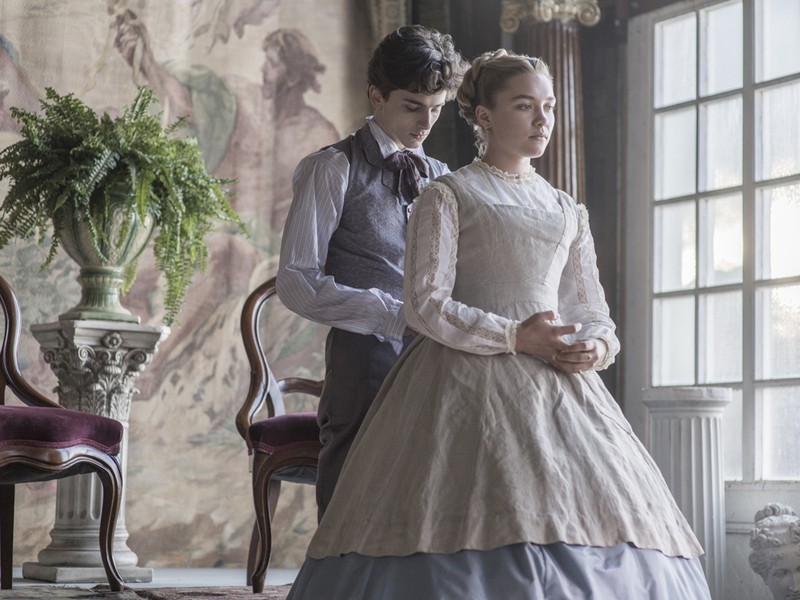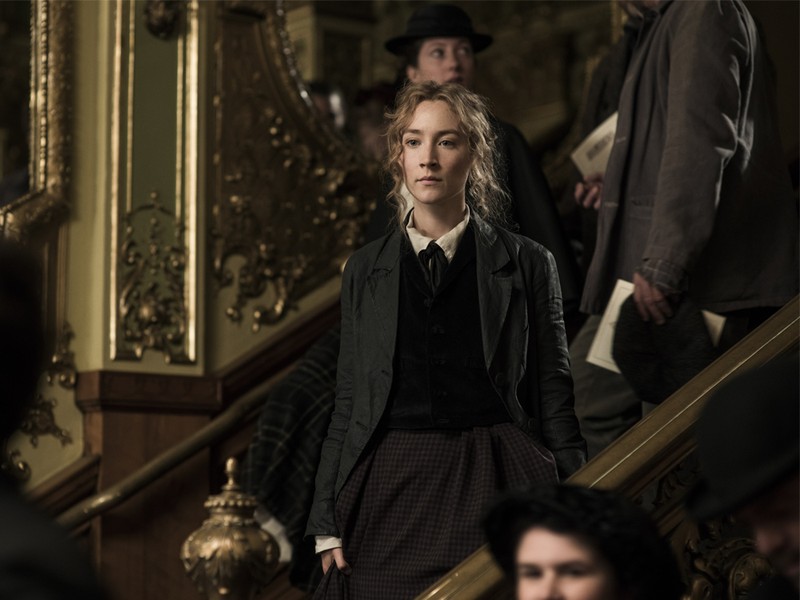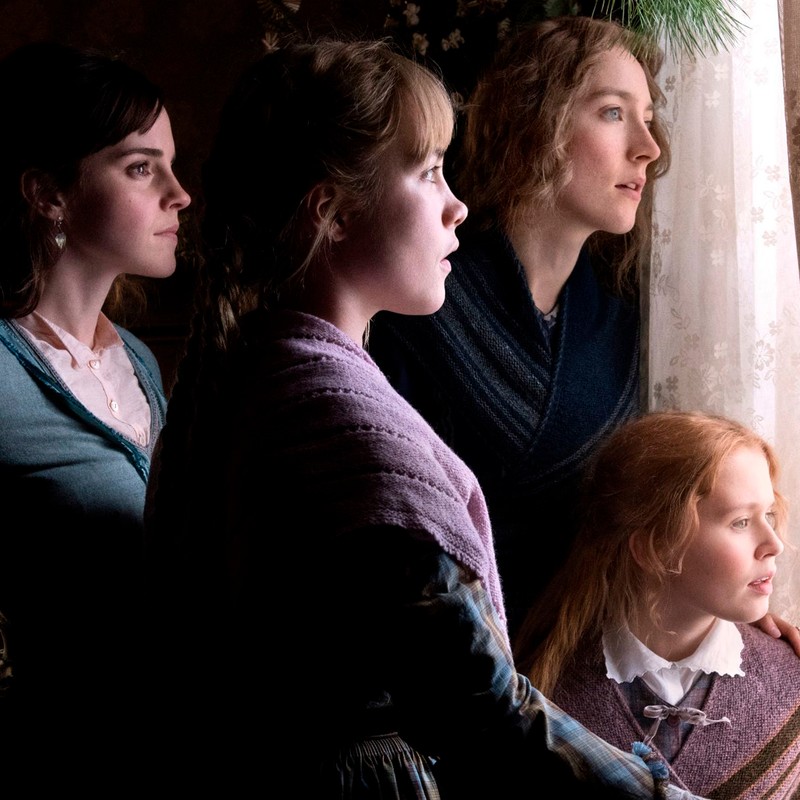What To Watch At The Cinema: Little Women
There is a moment in Little Women when the heroine, Jo March, makes an impassioned speech deploring the choices and conformities faced by women. The story might be set in the 19th century, but the dialogue continues to speak volumes, which is why the novel’s regarded as a literary classic.
Written by the American author Louisa May Alcott, Little Women tells the story of four sisters – Meg, Jo, Beth and Amy – who live in Massachusetts with their mother, Marmee, as they wait for the return of their father in the aftermath of the American Civil War. Inspired by Alcott’s own life with her three sisters, it explores the period when the simple days of childhood transitions into the realities and complexities of adulthood.
When it was published in 1868, people were transfixed by the vividly depicted characters and the fresh approach to themes of love, family, identity and grief. The novel gave a voice to the ‘little women’ and explored the social norms that dictated a narrow path for them.
Its appeal hasn’t waned and there have been numerous adaptations over the years, notably those starring Katharine Hepburn in 1933, and Winona Ryder in 1994. Now it’s the turn of Saoirse Ronan to play the tomboyish, stubborn, tempestuous Jo, who rejects the idea of marriage and moves to New York with aspirations of making it as a published author. But it’s a male-dominated industry and she’s forced to write sentimental tales, and accept patronising notes, such as ensuring the women in her stories wind up married – or dead. For these are the only two outcomes deemed acceptable by the patriarchy.
The film’s directed by Greta Gerwig, fresh from her success with Lady Bird, the coming-of-age tale that earned Ronan an Oscar nomination. The actress recently admitted to Variety she was “fully terrified every day” on the set of Little Women but has never felt so prepared to take on a role. Watching her compelling performance, it feels like she was made to play the inspiring protagonist.
Given she’s already received a Golden Globe nomination, an Oscar nomination – which would be her fourth – looks a shoo-in. And it would be well-deserved. Ronan is a luminous presence on screen, breathing life into Jo as she grapples with her talent and the feelings she has for Friedrich Bhaer, (Louis Garrel) a professor she meets in New York, and Theodore ‘Laurie’ Laurence (Timothée Chalamet), the charming grandson of the March family’s affluent neighbour.


Man-of-the-moment Chalamet also starred in Lady Bird and the easy rapport he continues to share with Ronan jumps off the screen, whether it’s their joyous dancing early in the film, the continuous play fighting, or the declaration of suppressed feelings later on.
Although this is Jo’s story, plenty of time is devoted to the other sisters. Emma Watson plays Meg, the eldest and the voice of reason, who falls for Laurie’s tutor, John Brooke (James Norton). It’s an understated performance in a tricky role.
Australian actress Eliza Scanlen plays Beth, the gentlest and most serene of the sisters, who finds solace in music and is gifted a piano by the paternal Mr Laurence. No spoilers, but her storyline, and Eliza’s quiet performance, will leave you with a very large lump in your throat.
In stark contrast to Beth’s timidity is the confidence displayed by Amy, the youngest of the March sisters, who loves frills, high society and the notion of marrying well – everything Jo detests. Spoilt, selfish and vain at times, she’s the least likeable of the sisters, so credit to rising star Florence Pugh for ably depicting detailed nuances, which make her a delight to watch.
A constant presence for all the sisters is their mother Marmee (Laura Dern), a charitable and loving woman who admits to Jo that beneath the calm, she has a temper to rival her daughter’s. We witness a spark of it in the final scene when the girls’ father (Bob Odenkirk) mentions the possibility of leaving again.
The film moves back and forth through the years, which is slightly disorientating at times but not enough to distract from the action or the storyline. Another small gripe is that we don’t see enough of Meryl Streep, who plays the sisters’ grand Aunt March. Her brusque manner and witty one-liners rival Maggie Smith’s dowager in Downton Abbey.
But these are small grievances, unlike the objections to Greta Gerwig being snubbed when the Golden Globe nominations were announced. Clearly comfortable in this genre, the fact Little Women is a period film is irrelevant. Gerwig brings warmth and wit to a stunning adaptation that feels fitting for our times.
Little Women is released on Boxing Day.
DISCLAIMER: We endeavour to always credit the correct original source of every image we use. If you think a credit may be incorrect, please contact us at info@sheerluxe.com.


